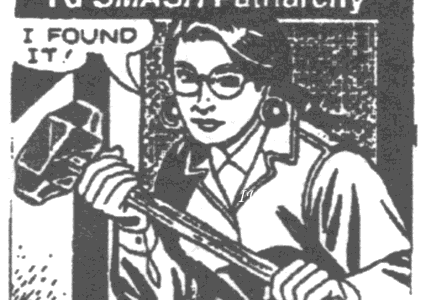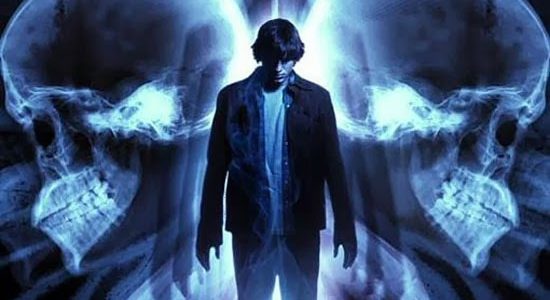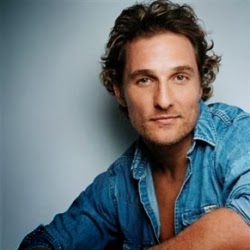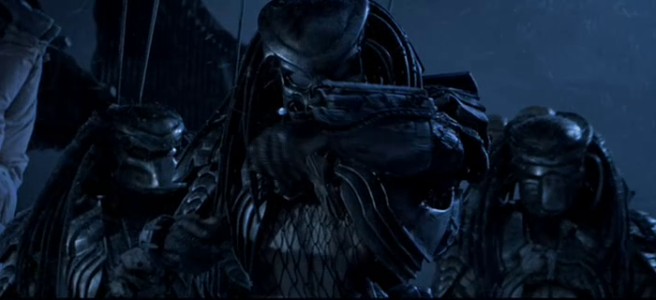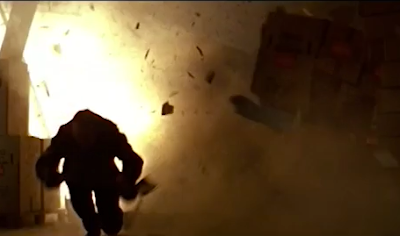MINOR UPDATE: So it has come to my attention that this whole “controversy” started because of one fringe MRA “activist”, but shouldn’t be viewed as the mindset of the MRA movement in general. It just happens that one idiot got a lot of attention, which fueled a “controversy” that responded to one particular viewpoint (and might have actually caused more people to side with it as a result).
SECOND UPDATE: Except, y’know, when other self-described MRAs pick up the idiot ball and go with it.
Mad Max: Fury Road could pull off a massive upset and easily end up being the best loved blockbuster of the year. With an unprecedented 98% Tomatometer (230 Fresh/4 Rotten) on Rotten Tomatoes, it has already blown past reserved/mixed praise of The Avengers: Age of Ultron, while other highly anticipated films like Jurassic World and The Hunger Games: Mockingjay Part II are likely to get a more mixed reaction. Only Star Wars is looking to hold a candle to Mad Max, but considering that we’ve all been down this road once before, would any of us be surprised if it ends up disappointing people on the basis of over-hype alone? I imagine it’ll be quite good, but I’d personally bet it’ll end up getting a Tomatometer of 75-85% when people realize it isn’t the second coming of Christ.
However, while most dialogue regarding Mad Max: Fury Road is (appropriately) directed towards the critical response and the mind-blowing action sequences, there is a growing subset of voices discussing whether the movie is feminist, and whether that is good or bad. One particular Men’s Rights Activist blog is stirring up quite a bit of controversy, with authour Aaron Clarey calling for men to boycott the film because apparently the movie is nothing other than feminist propaganda.
Having seen the movie yesterday, I can say pretty definitively that Aaron Clarey’s doom-mongering is as offensive as it is incorrect. For one thing, Fury Road still features plenty of fire tornadoes and 80s-style carnage to get your blood pumping, regardless of the protagonist’s gender. But just because it’s fun, let’s quickly go through a couple of the ridiculous claims that Clarey makes, shall we? First off, Clarey states that:
“The real issue is not whether feminism has infiltrated and co-opted Hollywood, ruining nearly every potentially-good action flick with a forced female character or an unnecessary romance sub-plot to eek out that extra 3 million in female attendees. It has.”
This claim is patently ridiculous for two main reasons. First off, this isn’t feminism, it is economics. Hollywood believes in pandering to the mass audience, and has believed that shoehorning a love subplot, no matter how unnecessary, will attract more people (eg, the Thor movies are particularly obvious offenders in this regard, despite the fact that the gratutious shirtless Chris Hemsworth scenes alone are enough to bring in the ladies). Even the hyper-masculine movies of the 80s featured this trope, such as Commando. Secondly, forcing a female character or a romance into a movie is just simply not feminist. This claim is just so ridiculous that it makes me question whether Clarey truly understands what feminism is, or whether he thinks that the presence of a woman alone is some sort of ghoulish affront to manhood. Feminists have been decrying the trope-filled world of typical generic love interests and useless female character for years now (women in fridges, Bechdel Test, etc), so either Hollywood feminists are absolutely awful at feminism, or there’s something wrong with Clarey’s line of thinking.
Anyway, moving on to the next claim:
“But let us be clear. This is the vehicle by which they are guaranteed to force a lecture on feminism down your throat. This is the Trojan Horse feminists and Hollywood leftists will use to (vainly) insist on the trope women are equal to men in all things, including physique, strength, and logic. And this is the subterfuge they will use to blur the lines between masculinity and femininity, further ruining women for men, and men for women. […] That and you can expect Hollywood to further condition young women to be like “Imperator Furiosa” and not Sophia Loren.”
Wow… just… wow. Look: in theory, while I think that men’s rights activism is an unnecessary cause for a number of reasons, it still seems like something reasonable for someone to pursue. However, voices like this are why men’s rights activism is a joke in practice. While feminism has shifted over the years to a point where it could more accurately be called “equal gender rights” at this point, men’s rights has already shifted to the status of “ideological gender enforcement”. Here Clarey makes it pretty obvious that he believes that gender roles have to be concrete and that anything which goes against his conception of these roles is to be condemned. He doesn’t even seem to be worried about the potential presence of feminist ideas – if he was at least fearful that forcing a female character into the movie would somehow compromise the narrative in some way, then there would be at least a bit of arguably reasonable justification for his complaint. However, the argument boils down to “I don’t think that women in this movie aret doing what I expect them to, therefore this sucks”. Hell… this revelation has me kind of wondering if MRAs are among the people protesting the new sex ed curriculum I talked about last week, since they mention gender identity/fluidity in it. Of course, if they are then that just makes me support the new curriculum even more.
Moving past the article though, there’s one important thing about this movie that is getting missed in the feminism conversation: the movie isn’t really overtly pushing a feminist agenda. Don’t get me wrong – it is certainly progressive and miles ahead of the male-dominated blockbusters that still occupy theatres, but on the feminism scale I’d put it further away from Teeth and much closer to Dredd (although Dredd is certainly the more feminist film, and I have never heard an MRA bitch about that). In fact, I think it would be more accurate to say that Mad Max: Fury Road is a gender-neutral film, and I wish that that is what the dialogue regarding this film was saying. Furiosa is arguably the protagonist since she gets the more interesting character arc, but Max still gets equal prominence as she does, and they both kick just about as much ass as each other. There seems to be a mutual respect between them, but Furiosa isn’t a generic love interest. Furiosa is very capable, and is better than Max at some things. In particular, there is a scene where Max keeps missing his shot with a sniper rifle, so when they’re down to their last shot, he returns it to Furiosa and acts as a support so that she can pull off that last killshot. If nothing else this shows that both characters need each other. Furiosa wouldn’t have gotten more than a few kilometers away from Immortan Joe without Max, and Max wouldn’t have survived without Furiosa. This isn’t feminist propaganda, this is gender-neutrality… which technically makes it a “feminist film” because, as I said earlier, modern feminism is about equality for both sexes. However, it is not pushing a “feminist agenda”, or any of the aspects of feminism which someone might actually disagree with… unless your cock shrinks at the very notion of women achieving any sort of agency though, of course.
I’ll let Sasha James close this one out, as she says it better than I could:
“Fury Road is a feminist film because it’s not outright ‘feminist propaganda.’ It uses gender and sex in a utilitarian, matter-of-fact manner, allowing its females to use their womanhood as a weapon against its universe’s established norms, but neither heroizing or demonizing that action. Fury Road radically allows its female characters to enact as much agency as its men. They are allowed to survive by whatever means are available to them.
Fury Road isn’t trying to say that Furiosa is better than Max or that female-led action films are the new status quo. Instead, George Miller’s fourth Mad Max film is a gentle reminder – amongst blood-lust and post-apocalyptic madness – that men and women are equal, and that we shouldn’t still have to make such a big f***ing deal about it.”
























